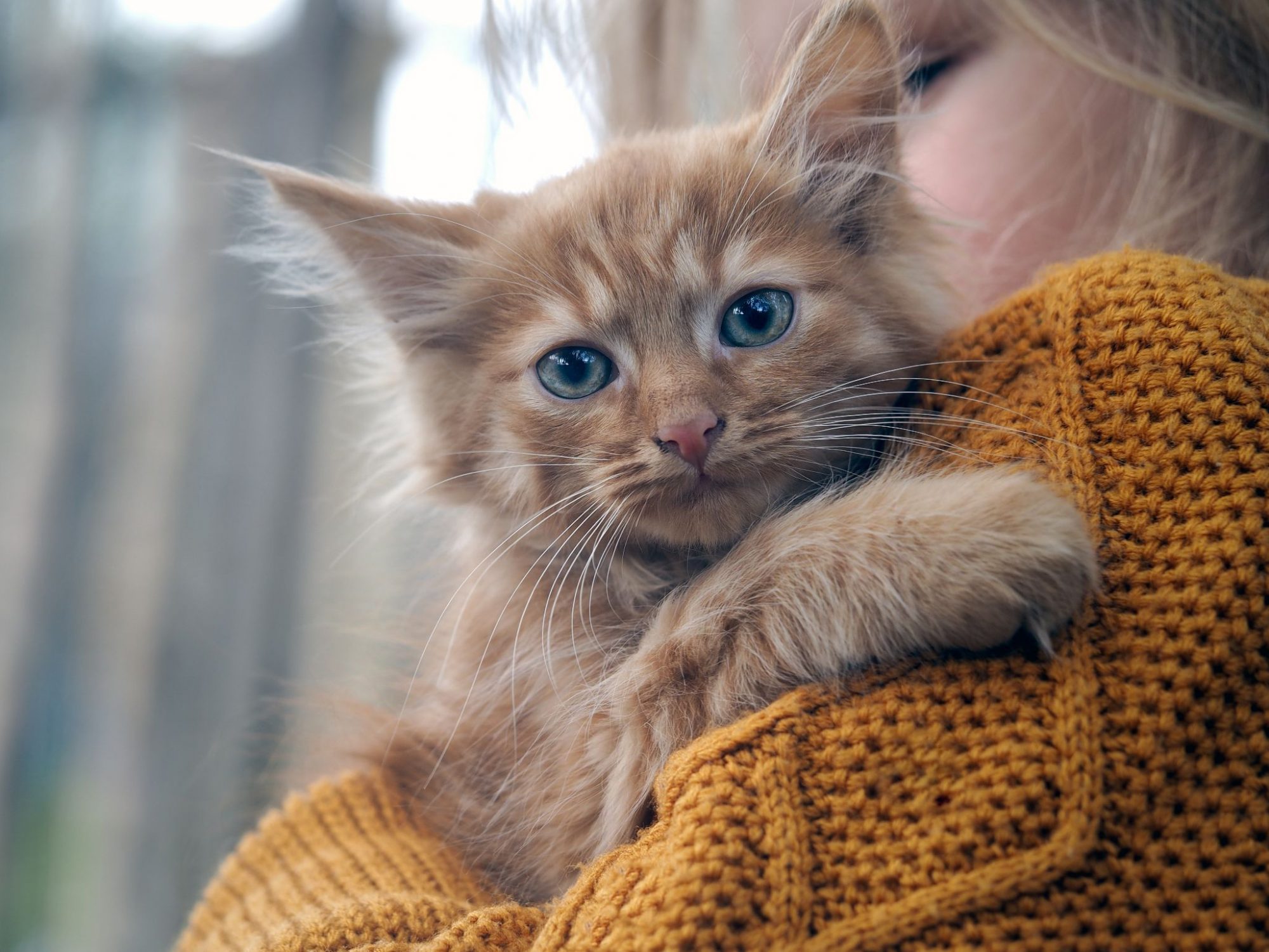Coughing Cat: Hairball or More?

Cleaning up the occasional hairball is par for the course when it comes to taking care of cats. And for the most part, hairballs are nothing to worry about. But how do you know if your coughing cat has a harmless hairball or some other more serious medical condition?
At Bayside Animal Hospital, we love keeping your cats healthy with routine wellness visits and treatments for illnesses when you need them. We’re happy to help demystify the reasons why your cat might cough and how to know when a call to the veterinarian is warranted.
Hairballs Happen
When your cat grooms himself, he swallows a lot of fur, the majority of which passes through his digestive tract with no problem. But when a buildup of fur forms in the stomach, he’ll try to get it out by vomiting—and he’ll most likely aim for your new rug! While inconvenient, the occasional hairball is nothing to be concerned about. Curb your cat’s hairball buildup by keeping him well-groomed, so his fur ends up on the comb and not in his tummy.
Asthma and Allergies
When a coughing cat is also sneezing or wheezing, he could have cat asthma or allergies. Household products that emit fumes like aerosol sprays, household cleaners, and cigarette smoke, plus environmental allergens like pollens, mold, and dust mites can trigger allergies and asthma in cats.
Bordetella or “Kennel Cough”
Most people associate kennel cough with dogs, but cats can catch it from infected dogs and other infected cats. When cats get exposed to the bacteria that causes kennel cough (Bordetella bronchiseptica), they can experience coughing, runny nose, eye discharge, and other symptoms.
Upper Respiratory Infections
A variety of respiratory illnesses can cause sneezing, coughing, lethargy, and other symptoms. These diseases include feline herpes virus, feline calicivirus, feline chlamydiosis, heartworm, fungal infections, and even some canine flu viruses if the cat is around dogs. Keeping your cat up-to-date on vaccines and parasite control can protect him from some of these bugs.
Vomiting
If your cat is allowed outdoors for the occasional stroll, he may throw up some grass when he comes back inside. This is common, but a cat with frequent episodes of vomiting should be evaluated right away by a veterinarian.
When to Call the Doctor
If you have a coughing kitty, a full examination with lab diagnostics will help determine if allergies, a respiratory condition, or other cause is to blame. With an accurate diagnosis, we can target our treatment plan and have your cat on the road to better health soon.
Contact us right away if your cat’s cough is persistent or accompanied by any of the following:
- Constant gagging or retching that doesn’t produce a hairball
- Loss of appetite
- Coughing up sputum
- Wheezing
- Lethargy
- Constipation
- Weight loss
- Watery eyes
- Sneezing
If you have questions about your cat’s symptoms or would like to schedule an appointment, please call us at (916) 791-8387.


